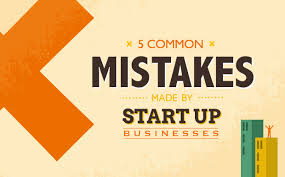Trying to sell into a big corporate? Startups DON’T make these 5 mistakes
Trying to sell into a big corporate? Scaleups DON’T make these 5 mistakes*
by Valerie Mocker
Working with corporates is important to scale your start-up. But how do you convert the first conversation into cash, or even further investment into your business?
As Startup Europe Partnership (SEP) we match companies like Telefonica, Orange and BBVA with innovative start-ups to provide procurement and investment opportunities.
1. Expect delays
Most entrepreneurs massively underestimate the time it takes to turn initial conversations into cash. A deal is only closed once the money is in your bank, and signing contracts often takes six, 12, 18 months. So going through the corporate’s internal processes is a gigantic time burner for start-ups.
Manage your expectations accordingly: “However long you think it will take to make the deal, double it and double the cost” – Alberto Onetti, Coordinator of Startup Europe Partnership (SEP).
2. Network first, sell later
Working with large corporations – like almost everything – requires networking. Many start-ups wrongly assume their first meeting is about proposing a deal. It’s the starting point of a relationship that you need to nurture over many months. “It’s like dating – you cannot expect that the first meeting works!” is how Sarah Drinkwater, head of Google’s Campus London, puts it.
Trust is the basis for collaboration, so go to events and meet your key contacts in person, pop by for catch-up coffees and remember personal details to bring up next time. We all prefer to work with people we like and trust.
3. Secure multiple champions
You need a champion inside the corporate who can push the idea of working with you. Who should this be? “The higher up in the hierarchy, the better. Try to approach the CEO or CTO and convince them that working with your start-up makes sense for their business,” is the advice from Markus Gnirck, COO at Startupbootcamp.
However, for long-term collaboration you should also network broadly to establish corporate memory of your relationship with more than one individual. Otherwise, your deal might fall through if your one champion leaves the corporate, and with him or her the willingness to work with you. LinkedIn is a helpful tool to identify colleagues of your initial champion who you can connect with.
4. Don’t focus on selling your product
Many entrepreneurs enter a conversation with corporates to sell their products. That’s wrong. Your goal should be to help corporates solve their problems. Andy McCartney, entrepreneur in residence at Microsoft, shares this top tip for start-ups: “Don’t go in looking to sell your product. Find the corporate’s pain point, understand their future roadmap and show how you can solve it.”
Don’t be afraid to ask about the company’s goals as well as the incentives and KPIs of your champion inside the corporate. If you can help them achieve their goals, working with you becomes so much more attractive!
5. Pitch professionally
Corporates and start-ups tend to talk differently, dress differently and work differently. Whereas turning up in a hoodie can seem refreshing, an unpolished pitch is not.
“You need to seem trustworthy and professional, ready to back up your promises with resources and qualified staff. Working with big corporates means you have to man (or woman) up!” recommends Piers Linney, Dragons’ Den star and CEO of Outsourcery, which last year announced a deal to participate in the Microsoft cloud solution provider programme to resell and bill Office 365.
Try to populate your advisory board with people who previously worked within the corporate you want to sell into and hire experienced sales staff who already speak the corporate language and have networks they can draw on.
Every corporate is different, and some do a better job of reducing barriers for start-ups than others. But being aware of these five pitfalls should help you, no matter which corporate you want to enchant in the future.
* Originally published on Startups.co.uk



Comments are closed.